Ordinary Objectives
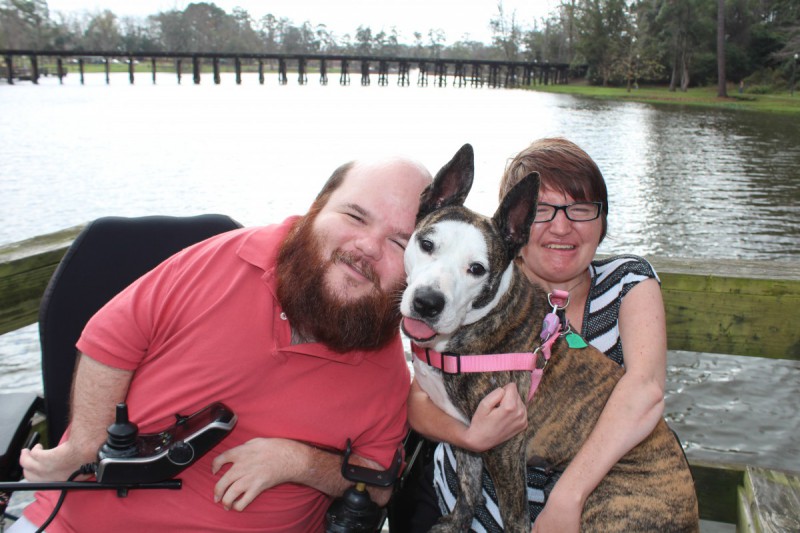
There is something about a dog, isn’t there? They’re kind, loyal, always on your side. You can tell a dog anything – your secrets, your dreams – and it will never question your ability to undertake an endeavour. Wouldn’t it be great if people were like that?
I’ve had a physical disability since birth. It’s been my bane and my blessing, but it doesn’t stand in the way of me living an active and independent life. We all live in an ableist world, where the vast majority of products, architectural designs, schedules, and expectations are constructed by and for able-bodied folks. But while these boundaries are set up without much consideration for how they affect disabled folks, I have desires and aspirations like everyone else. Too often, though, my able-bodied friends and family project their own fears and uncertainties on me when I make decisions to live a full life – a situation that is echoed in the lives of many folks living with disabilities.
My fiancée and I had wanted a dog ever since we moved in together. My fiancée is functionally disabled, too. For a year, we put it off because we would always find possible issues, usually involving our disabilities, that made us think twice about getting a dog. How would we put food in a bowl? How would we clip a leash onto a collar? No matter that I’ve had dogs all my life and I’ve always found a way to do these things; why were these worries surfacing now?
After second-guessing our own dog-ownership dreams for so long, we spontaneously visited the local animal shelter and promptly fell in love with a pup named Audrey. We ignored our fears and trepidation, signed the paperwork, and paid the fees that day. It wasn’t until we announced our new addition to our family, though, that we realized the source of our doubts and anxiety. While most of our family and friends congratulated us, a few voiced concerns as to whether we could do this. My brother came by to remind me how much of a responsibility having a dog could be. His wife called later to ask how I would react to certain scenarios. What if the dog gets off the leash? What if she runs away? I didn’t expect to face admonition for this decision, and I was a little offended. I certainly wouldn’t have called up my sister-in-law to ask how she would respond to all the potential catastrophes that come with owning a dog. Still, my family’s doubts and fears were projected onto me and I internalized their feelings. I began to wonder if getting a dog was the right choice.
Though this situation wasn’t my first experience with others’ doubts, it really made me reflect on the nature of these conversations. A few weeks before we had adopted our dog, our neighbour was injured at work and came home with a sling and several bruises and a swollen face. When I spoke to him, he said that he couldn’t imagine living life if he had been paralyzed. It struck me: is the fear of disability – and the belief that life with a disability is devoid of pleasures, challenges, jobs, and pets – the driving force behind the doubt and concerns able-bodied folks project onto me?
The two dominant narratives around people with disabilities portray us either as helpless burdens, or as “supercrips” capable of amazing feats that would be impossible for even the average able-bodied person. We see how these narratives work in media: news stories valorizing volunteers who feed supposedly incapable disabled people at the local soup kitchen, or, alternatively, news stories about an amputee climbing – overcoming – Kilimanjaro. This gives the impression that people with disabilities are either tragic and pitiful, or impressive, odds-defying superhumans. No wonder disability is scary. These narratives have made it impossible to imagine folks with disabilities having healthy, happy lives enriched by something as ordinary as getting a dog.
Those who project doubts on me and other folks with disabilities can only imagine what it must be like to live with a disability, and they may not realize that their doubts leave a deep-seated mark on those who have no choice but to live with disabilities. As a functionally disabled person, I should not have to reassure able-bodied folks of my abilities. We live in an ableist world fraught with structural and attitudinal discrimination. Our work, resistance, and activism should not have to include easing the minds of those who are fearful of our reality.
The truth is, life is in many ways no different for disabled folks than it is for able-bodied folks. My eating out at a restaurant or going to a museum is not an occasion to pat me on the back or call me noble. Likewise, my fiancée and I didn’t get our dog to prove to our able-bodied friends and family that we could handle it; we got Audrey because she’s sweet, friendly, and makes us feel like a complete family. We’re neither helpless nor overachievers. We’re people making the best of what we have, and we don’t want to field anyone’s fears or inspiration while we build our lives.
I’ll take Audrey for a family walk now. To the park … nothing special.
Readers like you keep Briarpatch alive and thriving. Subscribe today to support fiercely independent journalism.

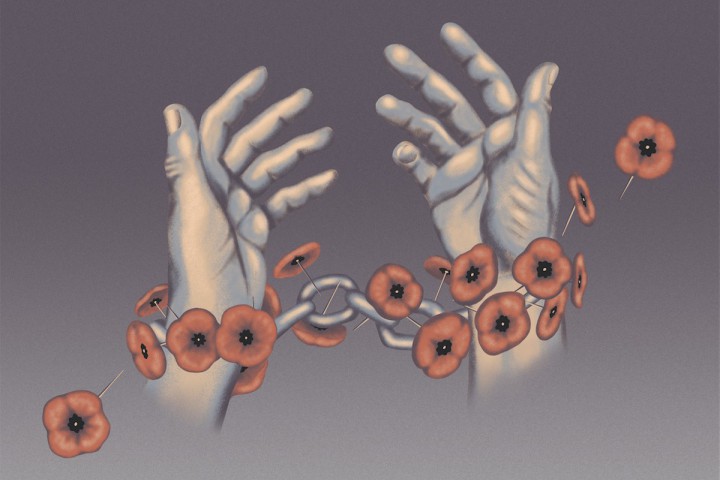
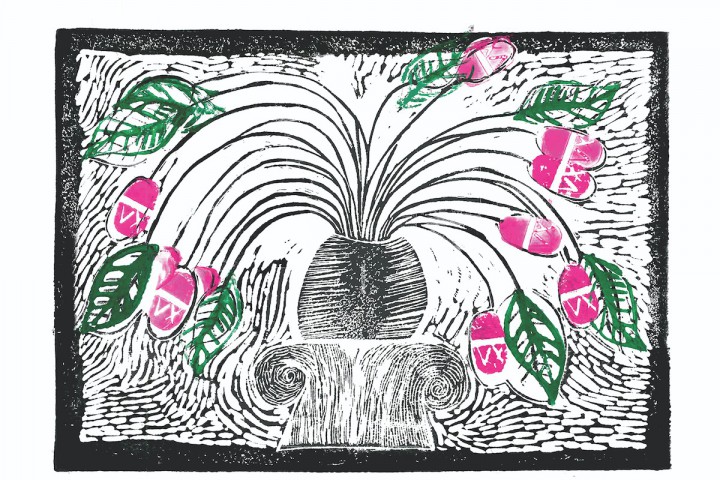
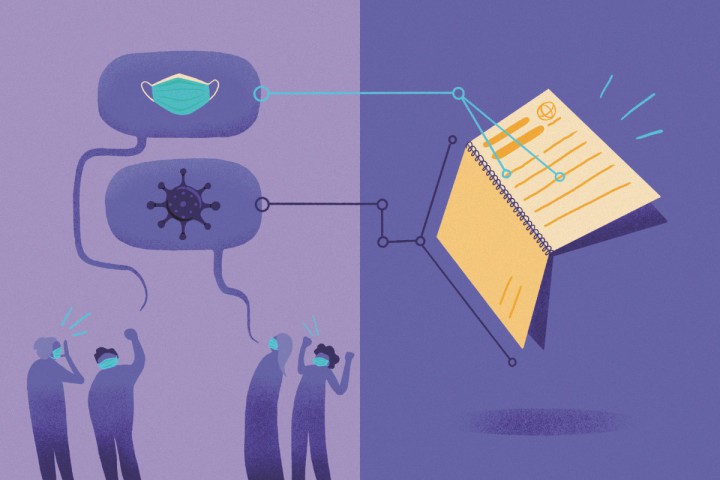
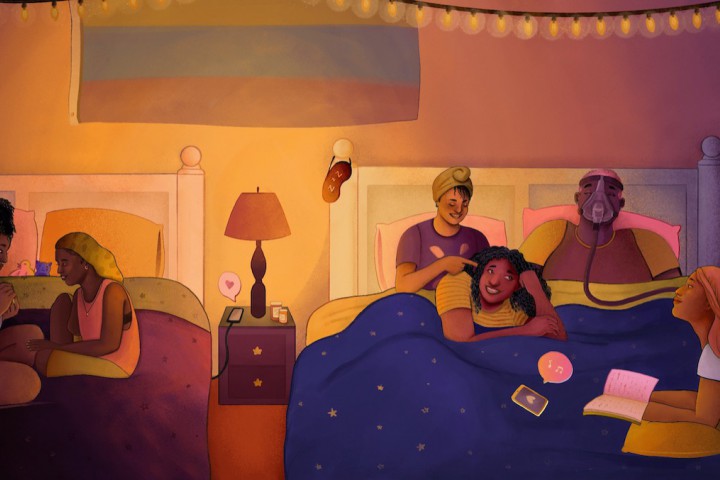
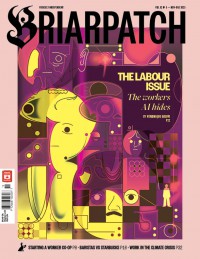
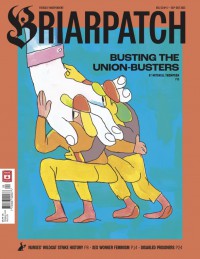
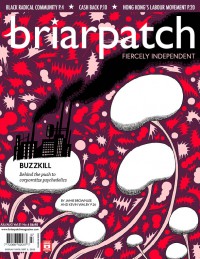
2 Comments
LOVE this piece! I hope to see more articles on disability on your site and in your magazine. One piece on disability every issue would be good.
From Courtney Belyea on May 28th, 2016 at 7:38pm
I agree with the authors of the article observations.
From drkaranja in KENYA on Jul 14th, 2016 at 1:40am